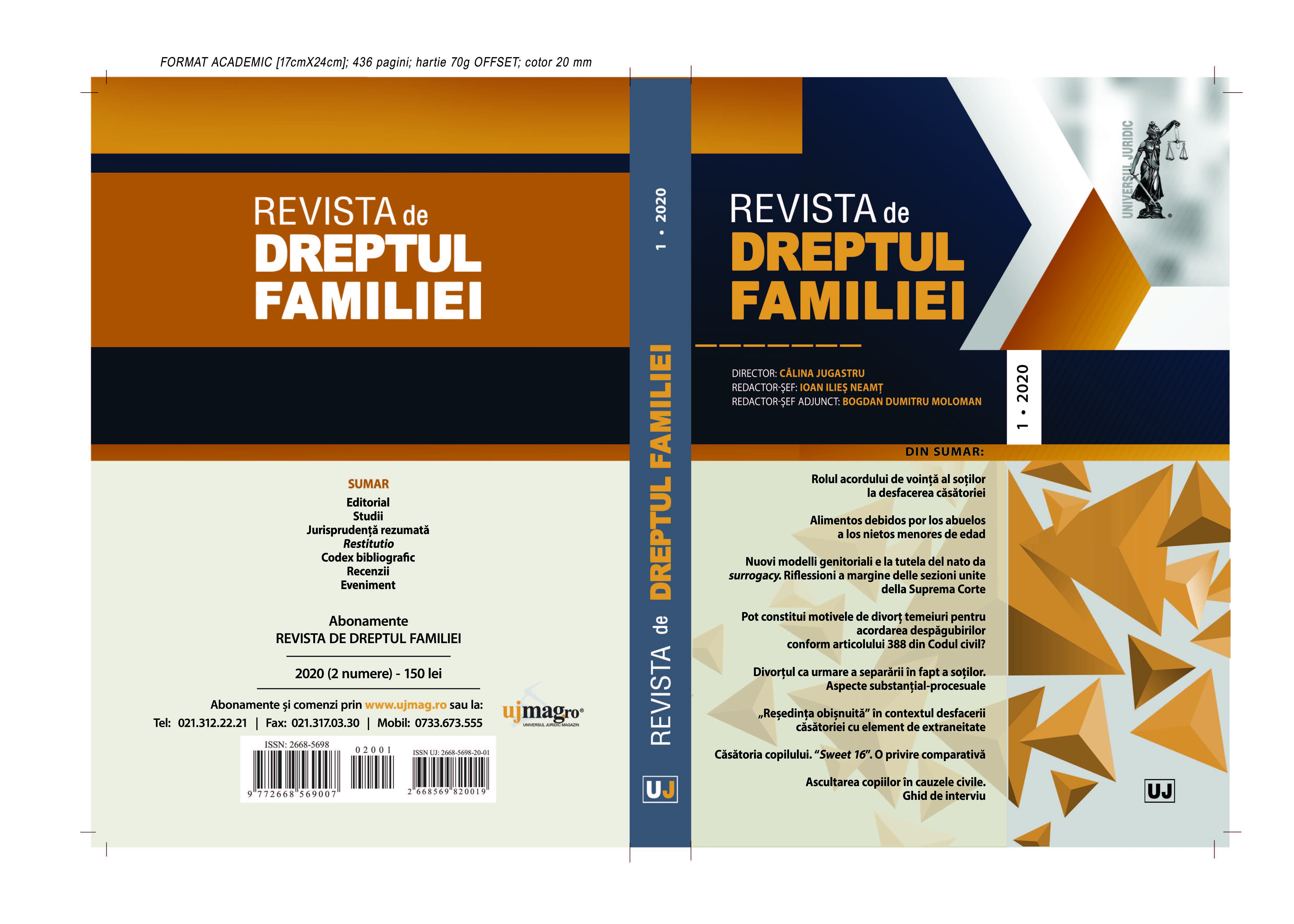„Reşedinţa obişnuită” în contextul desfacerii căsătoriei cu element de extraneitate
“Habitual residence” in the context of the dissolution of the marriage with an element of foreignness
Author(s): Călina JugastruSubject(s): Law, Constitution, Jurisprudence, Civil Law
Published by: Universul Juridic
Keywords: divorce; separation of body; element of extraneousness; determination of lex causae; determination of competent jurisdiction; connecting factors; habitual residence; qualification;
Summary/Abstract: Habitual residence has acquired a significant role in foreign legal relations, and family relationships are an eloquent proof of this. The matter of dissolution of marriage consistently appeals to habitual residence, as a connecting factor in conflicts of laws and conflicts of jurisdiction. Emphasizing the importance of this link implies the inventory of Regulation (EU) no. 1259/2010, of Regulation (EC) no. 2201/2003 [respectively, Regulation (EU) 2019/1111] and the provisions of Romanian law (Civil Code and Code of Civil Procedure). The verification of the variants of the applicable law, the relation of the habitual residence with other connection points, the arguments that plead for the frequency of its regulation are some premises that legitimize the research of the content of the notion of “habitual residence”. In the context in which the conflicting aspects of divorce and legal separation are “dominated” by the habitual residence, it is easy to see that European normative acts do not provide either the legal qualification of the notion or the indications of establishing habitual residence. However, outlining a definition could be useful, considering a convergent (and, ideally, unitary) jurisprudence. Support for a possible definition involves checking the landmarks scattered over time in the practice of the Luxembourg court.
Journal: Revista de dreptul familiei
- Issue Year: 2020
- Issue No: 1
- Page Range: 129-166
- Page Count: 39
- Language: Romanian
- Content File-PDF

